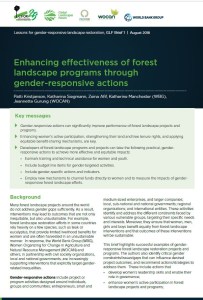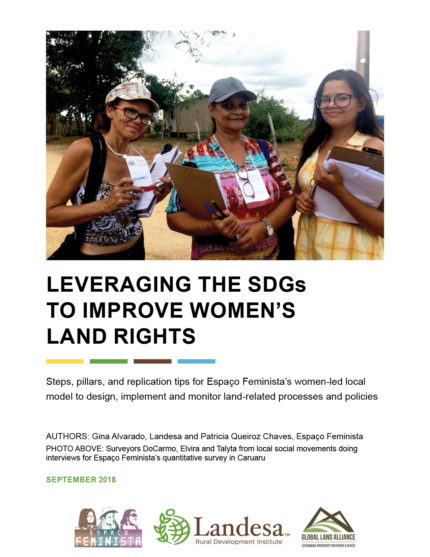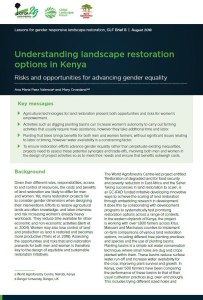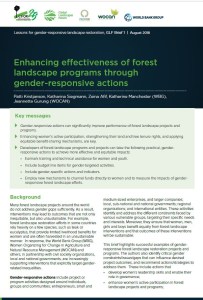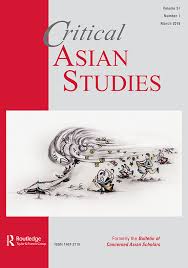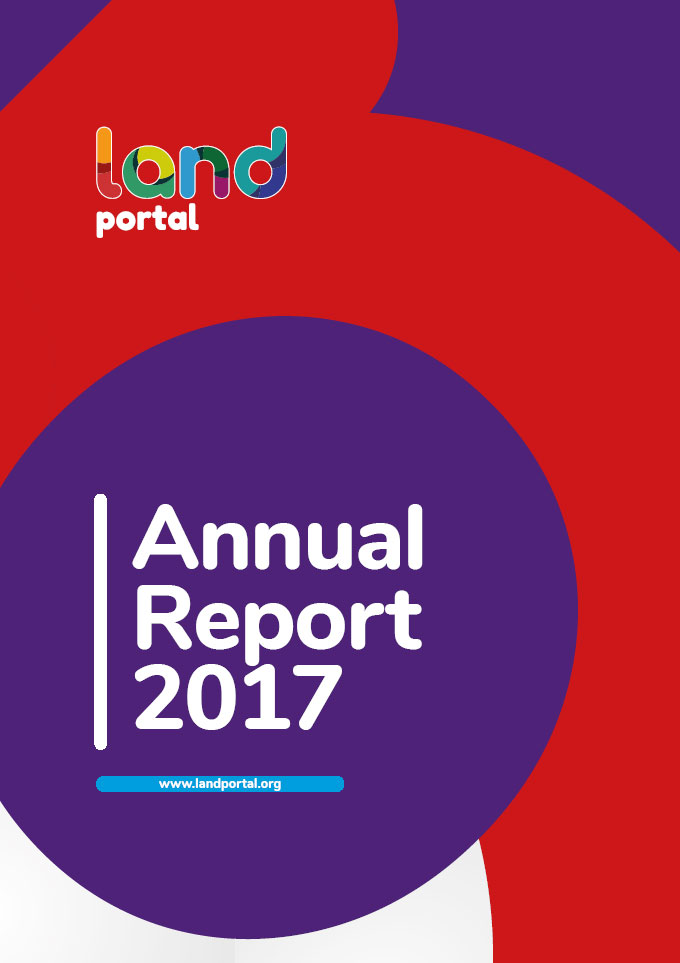Joint infobrief set on gender equality and forest landscape restoration
Forest Landscape Restoration (FLR) aims to achieve ecological integrity and enhance human well-being in deforested or degraded landscapes. Evidence shows that addressing gender equality and women’s rights is critical for addressing this dual objective. Against this backdrop, CIFOR and a number of partners hosted a Global Landscapes Forum workshop on FLR and gender equality in Nairobi, Kenya in November 2017.

